Just over a year since its official market launch, sensor company Plense Technologies is vigorously conducting research with the ultrasound sensor they aim to introduce to the market. Aiding their journey was a successful proof-of-concept carried out last year at the NPEC in Wageningen. Financial boosts are also propelling the startup forward, says co-founder Berend de Klerk.
The former master's student officially founded the company in February 2023 alongside Thijs Bieling. During the proof-of-concept in Wageningen, the sensor developers were able to accurately monitor plant stress and recovery during a 20% dehydration trial. "The results exceeded our expectations and were well-received."
The sensors that Plense Technologies intends to first test for robustness and usability will soon arrive, ensuring they can be easily deployed in cultivation. "We've learned that this is incredibly important for growers." Even before the officially launch, the sensor developers were actively gathering practical knowledge, as shown in the photo below at plant nursery Vreugdenhil.
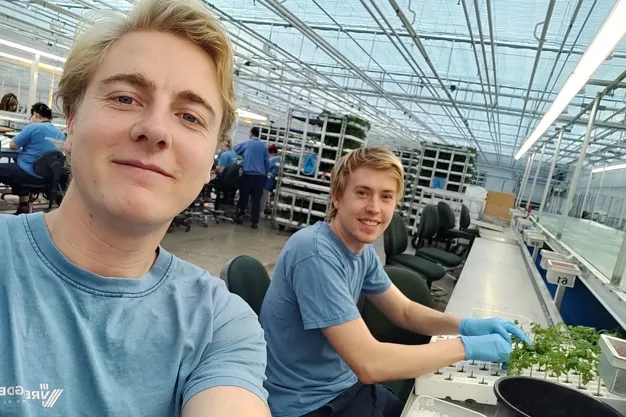 Berend and Thijs at Vreugdenhil Young Plants.
Berend and Thijs at Vreugdenhil Young Plants.
Linking action to sensor data
After initial in-house testing, Plense Technologies plans to deploy the sensors in various commercial and research pilots, including a research pilot in collaboration with Delphy. "Here, we will explore different irrigation strategies. We will compare our ultrasound data with data on, for example, moisture in the mat and EC. Additionally, our ultrasound sensor measures the microclimate. This will help us further understand our ultrasound data and quantify plant processes and reactions. It makes it easier to then link an action to it, so the user knows what to do with it."
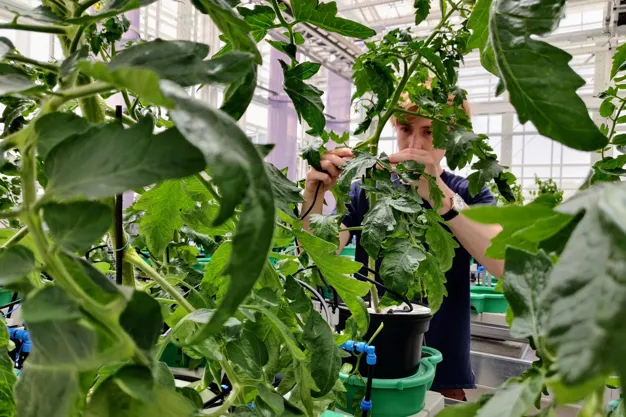
Thijs during the trial at the NPEC.
Substrate transition
Currently, many growers are looking for alternatives to peat or rockwool for cultivation. There is a (additional) need for insights into, for example, moisture in the substrate mat. Berend recognizes this need. "Our sensors can greatly assist growers in this. They accelerate the learning process, whether it's about transitioning to new substrates, switching to a new variety, moving to LED lighting, or cultivating in an energy-saving, 'on the edge' manner. To learn a new strategy, it's useful to first have a dictionary and, later, even a cookbook. We aim to develop that dictionary through these kinds of pilots."
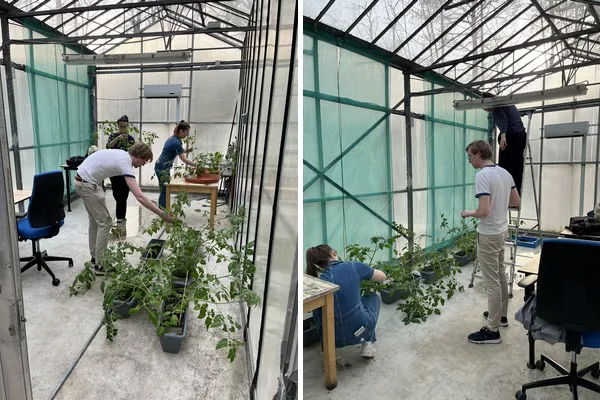 The current prototyping location is at the botanical garden of TU Delft, where the startup can quickly test sensors.
The current prototyping location is at the botanical garden of TU Delft, where the startup can quickly test sensors.
Dictionary
Another development in the market is the rise of increasingly smart software driven by artificial intelligence. The sensor specialist is closely monitoring these developments. "We are in close contact with these parties. However, we are currently holding off on this to focus on better understanding our data (developing the 'dictionary') before we enter such collaborations and start developing recipes together. But ultimately, we definitely see ourselves playing a role in AI-driven cultivation management."
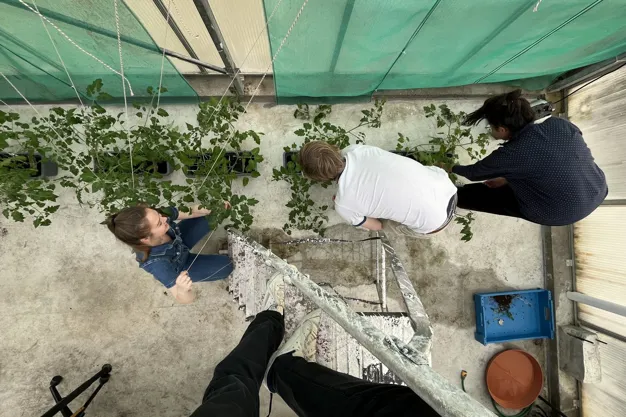
At the prototyping location, they will also conduct research on 5G integration.
Recently, the Delft-based startup joined the HortiHeroes network. The young company also managed to secure financing. "Together with our partner M91200, we received an MIT R&D subsidy." Additionally, the startup participated in programs by YES!Delft and StartLife. "They have greatly assisted us in our validation process."
The team has also expanded. "We have now hired our first employee. Her name is Miranda, and she has joined as a Data Scientist." Besides Miranda, Berend and Thijs have also engaged several working students and graduates, including Janyk, Tygo, Jasper, Laura, and Paul. Importantly, as Berend mentioned above, the focus is on better understanding their own data.
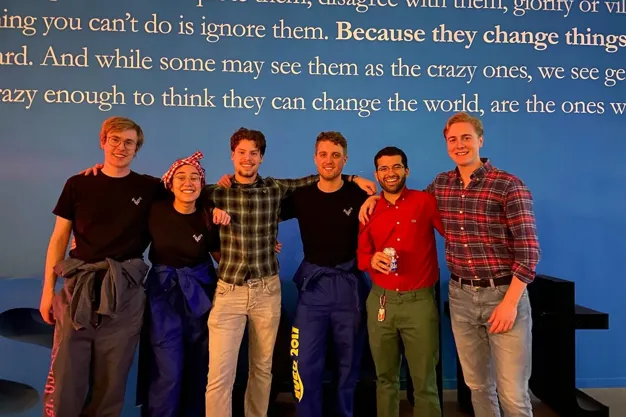
The growing team at Plense Technologies.
For more information:
Plense Technologies
[email protected]
www.plense.tech
